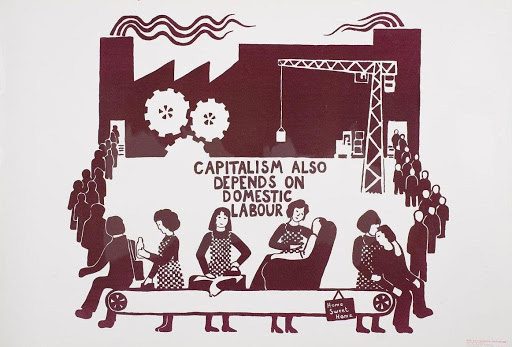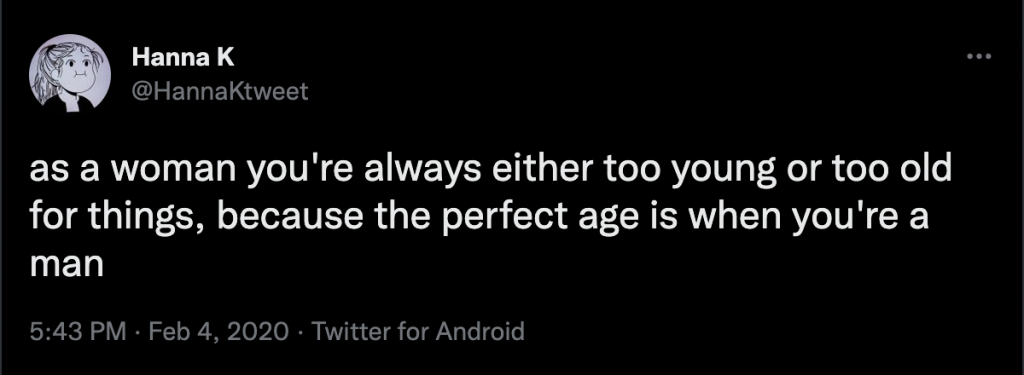Breaking News
- 2 years ago
- WHERE THE WILDWAYS ARE
- 3 years ago
- They Call It Worm. They Call It Lame. That’s Not Its Name.
- 3 years ago
- Climate of Change Episode 4: ‘Rewiring the Future’ Review
- 3 years ago
- The Playbook for Progress Homepage
- 3 years ago
- Climate of Change Episode 3: “Faith, Hope, and Electricity” – A Review

Toxic Men, Toxic Earth, Toxic Futures
To start, defund the patriarchy
Written by Sophia Sanniti
After a riveting presentation this February on the rise and decline of patriarchal systems by prominent American feminist economist Nancy Folbre [1], I was more than displeased to see the webinar chat had been ‘zoom bombed’ by someone repeatedly inquiring with a group of engaged feminist thinkers about getting their dick sucked. Patriarchy, encapsulated.
This toxic form of masculinity haunts all facets of civilized life – from the bedroom to the boardroom, from the classroom to the courtroom, toxic masculinity shapes our psychology, our behaviour, our economic institutions and our public policy.
The portrayal of masculinity as dominant and femininity as inferior has become so unbearably toxic, it may be the most formidable opponent of the environmental justice movement.
Although human activity is collectively breaching biophysical planetary boundaries [2], no country currently satisfies the basic needs of its citizens within a sustainable level of resource use [3]. What’s more, research shows that we are unlikely to meet international climate targets such as the Paris Accord if there is GDP growth in all countries [4]. Consistent growth in GDP has historically been predicated on rising rates of energy and resource consumption (and thus environmental devastation), equal to or even greater than GDP, meaning that GDP growth cannot be sustained indefinitely [5-6]. And this simple but inconvenient fact is what calls for the end of capitalist-patriarchy reign. The only problem? Toxic masculinity thrives on the unrelenting rise of the penis. I mean, economy.
Perpetual growth of the “economy” is the conventional manifestation of progressive hope, an idea spawned during the scientific revolution that all aspects of human life, from living standards to scientific understanding, are constantly building on each other in one direction towards ultimate improvement [7]. But measuring economic growth within a single lifetime is actually a very recent phenomenon [8]. Further, mean welfare in rich nations have stagnated or even reversed despite steady GDP growth, while poverty, unemployment and environmental issues continue to be exacerbated [9-11].
This disconnect between economic activity and societal outcome is due to what feminist economists call the sexual division of labour [12-13]. In the productive sphere of the male-dominated public economy, work is captured by global markets through the production of commodities, the payment of wages and the use of offices or factories. In the reproductive sphere of the female-dominated private domain, the vital and unending work to produce and sustain the wage worker (i.e., care work) is scarcely acknowledged financially or even socially. This includes the provisioning of food and shelter, nurturing community, and “mother” nature’s ecosystem services that ensure a stable climate.
Feminist economists argue that this institutionalized divorce between public and private, and the subordination of the reproductive (feminine) to the productive (masculine), is as critical to the rise of capitalism as was the wage worker in the factory [14-15]. This is because reproductive work subsidizes wage work and the larger processes of capital accumulation through the maintenance of social and environmental health. Modern economic thought actively devalues care work rendering this labour, and the participating members of this work, virtually invisible.


The impetus behind this division was examined by feminist political philosopher Mary O’Brien who argued that men’s “periphery” role in the reproduction of human life is an experience of alienation and isolation. In response, the cultural invention of the male-dominated productive sphere was created, validated by its self-imposed political and historical properties [16]. Through the privileging of political/historical life over and above the physical/natural, patriarchy was born along with the toxic forms of masculinity (e.g., aggression and violence, suppressing emotions, sexism) which ensure its upkeep.
Capitalistic obsessions with economic growth are nothing more than the latest manifestation of mankind’s attempt at the continuous erection of a politically privileged alternative to the creation and maintenance of life, currently known as GDP. In efforts to uphold this culturally prescribed delusion, reproductive work like climate stability and social welfare are systematically diverted away from the necessities of life and towards the unsustainable growth model – to the detriment of all.
These harmful gender dynamics manifest in insidious but significant ways in everyday life. According to the International Labour Organization, on a global scale, women perform the vast majority of both paid and unpaid care work [17]. In no country in the world do men and women perform an equal share. Beyond just the distribution of work, the distribution of risk is also fatally one-sided. From the formula used to determine standard office temperatures, to the standardized fittings of personal protective equipment (PPE), to consumer testing standards for vehicle safety, our male-biased world effectively renders half of the world’s population invisible – often to the detriment of health, injury and completely preventable death [18].

Unequal contributions to the reproductive sphere become even more fascinating when you dig into the mental gymnastics that take place behind the scenes. A study based in the United States found that, in response to female breadwinners in the home, men tended to experience something called a ‘gender role threat’ whereby they took on even less domestic work in order to preserve their masculinity [19]. Known in psychology as gender congruity theory, men and women tend to engage in behaviours congruent with conventional gender norms in order to maintain social status and avoid social penalties such as exclusion [20]. This dynamic can be further compounded by external shocks like an economic recession, where household duties such as budget management are further thrust upon women since they are perceived to better micromanage scarce resources [21].
Gender congruency plays out particularly vividly in the realm of environmentally conscious behaviour. According to research conducted at the University of Pennsylvania, both men and women see caring about the environment as ‘feminine’ due to the nurturing and cooperative traits these actions require [22]. An individual that was recycling or using a reusable canvas bag was described as more feminine, and “unmanly”, regardless of their gender. In another study, threatening a man’s gender identity (i.e., using a pink gift card) resulted in male participants choosing more environmentally-intensive products in efforts to reassert their masculinity [23]. Masculinity is also an enduring barrier to the adoption of plant-based diets [24-26], particularly due to the symbolic links between dominance, meat consumption and the oppression of women [27-28].
Trust, it gets crazier. A study found that feminine-named hurricanes cause significantly more deaths compared to their masculine counterparts. The research shows that gender-congruent perceptions of strength (i.e., men are perceived as stronger) are responsible for feminine-named hurricanes to be seen as lower risk and intensity, consequently leading to less preparedness [29]. Hurricanes with male names were perceived in multiple studies as more intense, eliciting stronger intentions to evacuate. In fact, the subconscious bias was so strong, changing a hurricane’s name from a relatively male to female name was shown to triple the death toll.
Discourse on climate policy is also disturbingly gendered. “Business” framings of the climate change debate, seen as congruent with masculinity, were found to be more appealing to men compared to ethics or justice framings [30]. Further, men employing climate justice policy advocacy were perceived as more likely to be gay and to have feminine traits by both men and women – perceptions that were associated with seeing the ethics-based policy argument as weaker. This is problematic on a number of fronts, particularly since ethics framings challenge and deconstruct the very power structures that conventional business framings reinforce.
The last area of overlap to explore is the concept of consent. The viral #MeToo movement in 2017, catalyzed by Weinstein’s sex offences and Trump’s pussy-grabbing boast, reinvigorated the many horrific injustices taken aim at, against, and within women’s bodies. Taking a wider lens, we can begin to draw provocative connections between predatory sexual violence and violence against the planet [31]. Calls for consent from Indigenous communities across Canada in our nation’s pursuit for an ever-expanding natural resource economy parallel directly with the demands for justice from sexual violence survivors. A growing body of research observes increasing overlap between right-wing nationalism, anti-feminism and climate denialism. In fact, the concept of climate change itself, and the ambitious policies it requires, threatens to completely destabilize the hyper-masculine foundations of industrial modernity [32-33].
What does dismantling the capitalist-patriarchy look like? Rather than “leaning in” and inviting women and marginalized others into the masculinized and monetized roles of the productive sphere, we must work collaboratively to deconstruct these systems. Advocating for increased investment and value in reproductive realms including basic incomes, universal childcare, health care and education, and caring practices that sustain and regenerate life.
The very thoughts, opinions and conversations we have as a global community about appropriate and feasible political responses to the climate crisis are shaped deeply by these pervasive gender biases. Our success in reducing our environmental footprint, just like our success in flattening the COVID-19 curve, is certainly dependent on the individual actions of each and every one of us. But unless we begin to tackle the more systemic and structural forces that perpetuate the impending crises, we cannot succeed. Whether by design or disaster, the global economy will need to slow its forces to align with the physical realities of our limited planet.
Sophia Sanniti is a PhD Candidate in Social and Ecological Sustainability in the University of Waterloo’s School for Environment, Resources and Sustainability. Her research explores the intersections of ecological economics, critical (eco)feminism, and household sustainability.
References:
[1] UMass Amherst Political Economy Workshop (2021). Nancy Folbre Book Launch: The Rise and Decline of Patriarchal Systems. YoutTube Video accessed from: https://www.youtube.com/watch?v=4GDCHFRzghY
[2] Steffen, W., Richardson, K., Rockström, J., Cornell, S., Fetzer, I., Bennett, E., et al. (2015). Planetary boundaries: Guiding human development on a changing planet. Science (New York, N.Y.), 348(6240), 1217.
[3] O’Neill, D. W., Fanning, A. L., Lamb, W. F., & Steinberger, J. K. (2018). A good life for all within planetary boundaries. Nature Sustainability, 1, 88–95.
[4] Antal, M., & Van Den Bergh, J. C. J. M. (2014). Green growth and climate change: conceptual and empirical considerations. Climate Policy, 16(2), 165–177.
[5] Hickel, J., & Kallis, G. (2019). Is Green Growth Possible? New Political Economy, 1–18.
[6] Gomez-Baggethun, E., & Naredo, J. M. (2015). In search of lost time : the rise and fall of limits to growth in international sustainability policy. Sustainability Science, 10(3), 385–395.
[7] Pollard, S. (1971). The Idea of Progress: History and Society. Harmondsworth: Pengun Books.
[8] Heilbroner, R. (1995). Visions of the Future: The Distant Past, Yesterday, Today, Tomorrow. New York, NY: Oxford University Press.
[9] Layard, R. (2005). Happiness: Lessons from A New Science. London: Penguin.
[10] Victor, P. A. (2019). Managing without Growth: Slower by Design, not Disaster (Second Edi). Cheltenham, UK: Edward Elgar Publishing Limited.
[11] Picketty, T. (2014). Capital in the 21st century. Cambridge, UK: Harvard University Press.
[12] Bakker, I. (2007). Social Reproduction and the Constitution of a Gendered Political Economy. New Political Economy, 12(4), 541–556.
[13] Collard, R., & Dempsey, J. (2018). Accumulation by difference-making : an anthropocene story , starring witches. Gender, Place & Culture, 0(0), 1–16.
[14] Federici, S. (2009). Caliban and the Witch: Women, the Body and Primitive Accumulation. Brooklyn, NY: Automedia.
[15] Mies, M. (1986). Patriarchy and Accumulation on a World Scale. London, UK: Zed Books.
[16] O’Brien, M. (1983). Naming Our Experience: Mary O’Brien on the Politics of Reproduction. Healthsharing: A Canadian Women’s Health Quarterly, (Summer 1983), 11–14.
[17] International Labour Organization. (2018). Care Work and Care Jobs: For the future of decent work. Geneva, Switzerland.
[18] Criado Perez, C. (2019). Invisible Women: Data Bias in a World Designed for Men. New York: Abrams Press.
[19] Besen-Cassino, Y., & Cassino, D. (2014). Division of House Chores and the Curious Case of Cooking: The Effects of Earning Inequality on House Chores among Dual-Earner Couples. International Journal of Gender Studies, 3(6), 25–53.
[20] Eagly, A.H., 1987. Sex Differences in Social Behavior: A Social-Role Interpretation. Erlbaum, Hillsdale, NJ.
[21] Callegari, J., Liedgren, P., Kullberg, C., Liedgren, P., & Kullberg, C. (2019). Gendered debt – a scoping study review of research on debt acquisition and management in single and couple households och hantering av skulder. European Journal of Social Work, 0(0), 1–13.
[22] Swim, J., Gillis, A., & Hamaty, K. (2019). Gender Bending and Gender Conformity: The Social Consequences of Engaging in Feminine and Masculine Pro-Environmental Behaviors. Sex Roles, 82, 363–385.
[23] Brough, A. R., Wilkie, J. E. B., Ma, J., Isaac, M. S., & Gal, D. (2015). Is Eco-Friendly Unmanly? The green-feminine stereotype and its effect on sustainable consumption. Journal of Consumer Research, 1–51.
[24] Rozin, P., Hormes, J. M., Faith, M. S., & Wansink, B. (2012). Is Meat Male? A Quantitative Multimethod Framework to Establish Metaphoric Relationships. Journal of Consumer Research, 39(3), 629–643. https://doi.org/10.1086/664970
[25] Ruby, M. B. (2012). Vegetarianism. A blossoming field of study. Appetite, 58(1), 141–150. https://doi.org/10.1016/j.appet.2011.09.019
[26] Pohjolainen, P., Vinnari, M., & Jokinen, P. (2015). Consumers’ perceived barriers to following a plant-based diet. British Food Journal, 117(3), 1150–1167. https://doi.org/10.1108/BFJ-09-2013-0252
[27] Adams, C. J. (2016). The Sexual Politics of Meat. New York: Bloomsbury Academic.
[28] Loughnan, S., Haslam, N., & Bastian, B. (2010). The role of meat consumption in the denial of moral status and mind to meat animals. Appetite, 55(1), 156–159.
[29] Jung, K., Shavitt, S., Viswanathan, M. and Hilbe, J.M. (2014). Female hurricanes are deadlier than male hurricanes. Proceedings of the National Academy of Sciences of the United States of America, 11(24): 8782-8787.
[30] Swim, J. K., Vescio, T. K., Dahl, J. L., & Zawadzki, S. J. (2018). Gendered discourse about climate change policies. Global Environmental Change, 48(December 2017), 216–225.
[31] Gaard, G. (2001). Women, Water, Energy. Organization & Environment, 14(2), 157–172.
[32] Anshelm, J., & Hultman, M. (2014). A green fatwā? Climate change as a threat to the masculinity of industrial modernity. NORMA: International Journal for Masculinity Studies, 9(2), 84–96.
[33] Gelin, M. (2019). The Misogyny of Climate Deniers. Apocalypse Soon. Accessed online at: https://newrepublic.com/article/154879/misogyny-climate-deniers.

